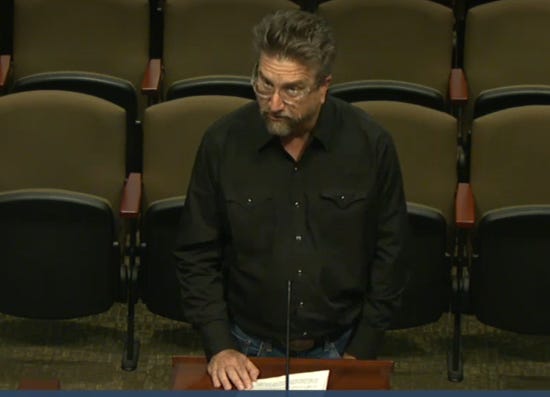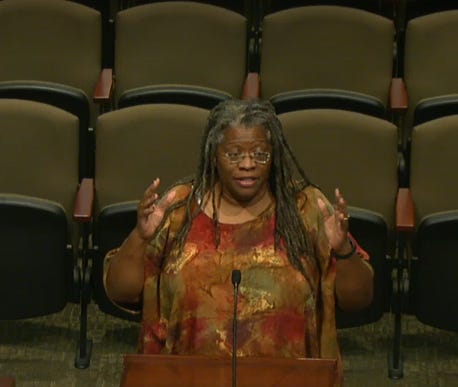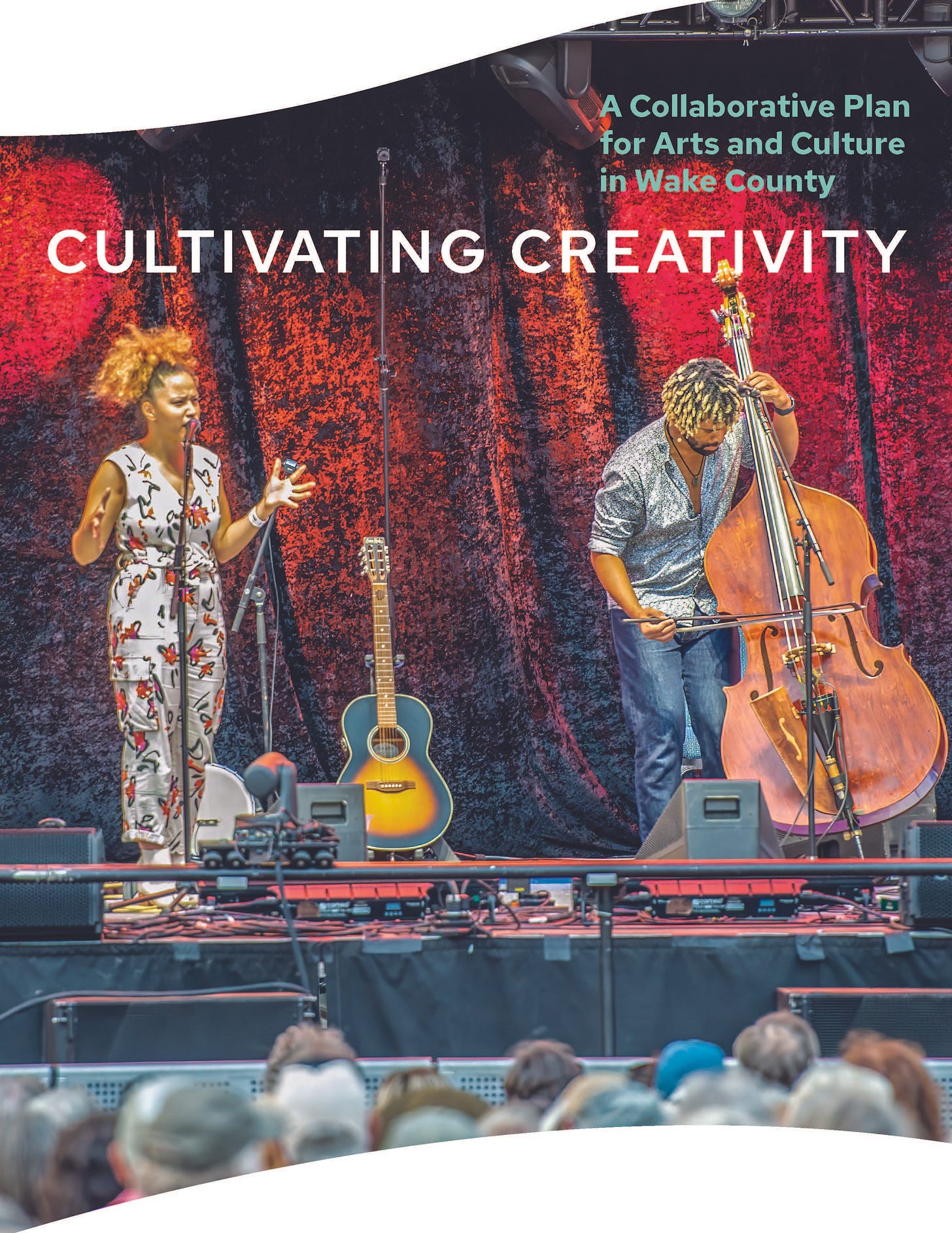Wake County (NC) Residents Urge County Commissioners to Fully Implement and Fund Countywide Arts & Culture Plan
Commissioners urged to fund and implement the new plan, citing urgent needs in schools, strained arts organizations, and a shared push for equitable access to arts and culture.
Raleigh, NC, Nov. 18, 2025 — During last night’s Wake County Board of Commissioners meeting, a broad coalition of artists, parents, nonprofit leaders, and cultural workers delivered an unmistakable message: the Countywide Cultural Plan must move from vision to action, and the time to fund it is now.
The cultural plan, finalized earlier this year following a multi-month public engagement process, was described by speakers as a long-awaited roadmap for strengthening arts access, creative education, and cultural development across all municipalities. Much of their testimony echoed themes the board heard during its Sept. 15th meeting, where commissioners received background updates on arts partnerships and countywide cultural needs.
Background: What the Countywide Cultural Plan Calls For
The Cultivating Creativity plan (document) is Wake County’s ten year cultural development roadmap, created through collaboration among Wake County Government, United Arts Wake County, all 12 municipalities, and hundreds of residents.
It outlines a countywide vision where every resident can access arts and cultural experiences close to home and where artists can afford to live and work in the community. The plan is built around three major goals: strengthening municipal cultural infrastructure, supporting a sustainable arts sector and creative economy, and expanding access and awareness of arts opportunities across the county.
The plan recommends expanding county funding from $0.41 to $4.00 per capita, launching a cultural technical assistance fund, developing creative spaces, expanding public art, and improving marketing and communication so residents can easily find cultural events and programs.
Parents and Arts Educators Call for Equal Access to Arts Education
During the public comments section of the meeting, several speakers highlighted the impact of arts funding on schools, especially those with limited resources.
Sandy Freed-Fogelman, a Wake County parent, arts advocate, and PTA leader, told commissioners that United Arts programs are vital for schools that cannot otherwise afford access to the arts.
“If this funding is reduced or removed, the impact will be immediate and severe. These programs will disappear and with them opportunities for connection and growth that reach every student.”
She added:
“The arts are not enrichment, they are education.”
Her comments emphasized that many Wake County schools lack consistent access to arts instruction and that the cultural plan could help close those gaps if funded.
Major Arts Organizations Cite Economic Impact and Urgent Needs
David Brower, executive director of PineCone, emphasized both economic and cultural benefits. He noted that this year’s free-to-attend Raleigh Bluegrass Festival drew 155,000 attendees, with the majority of attendees coming from Wake County. The festival also employed more than 500 artists and workers.

Brower warned that the festival’s future is uncertain without more substantial support from the county.
“We made this festival work this year… but I’m here to tell you that it’s being done on faith. We broke even this year… but I’m not entirely sure where the money’s coming from for next year’s events.”
Brower urged commissioners to implement the cultural plan fully:
“I sincerely hope that you will prioritize the goals outlined in the plan and dedicate resources to make sure that we can do this work and get it done together in the coming year.”
United Arts Leaders Seek Clear Timeline and Funding Commitment
United Arts leaders Diana Hurtado and Ragen Carlile delivered direct calls for action.
Hurtado thanked commissioners for finalizing the plan but asked plainly:
“What is the timeline for implementation? What funding or resources have been identified to bring this plan to life?”
She then summarized the urgency:
“The vision is clear, the need is real and the moment to act is now.”
Carlile, who oversees programming at United Arts, described daily needs from artists, schools, and municipalities, including requests for rehearsal space, performance venues, funding assistance, and support for reaching new audiences. Her remarks reinforced the idea that the cultural plan is ready for implementation.
Artists Describe Transformative Impact on Students
Professional storytellers Donna Washington and Linda Gorham described the personal and educational value of arts experiences.

Washington shared a moment when a student with Down syndrome spontaneously reenacted a story and directed adults in the hallway, something the school had never seen:
“They said no… They can’t afford it but you could fund the United Arts.”
Their stories illustrated the kinds of experiences that supporters say would become less accessible without implementation of the cultural plan.
Countywide Momentum Remains High
Speakers represented multiple municipalities across Wake County, reinforcing the need for a coordinated countywide approach. The September meeting record shows that commissioners have already acknowledged gaps in municipal arts resources and varying levels of capacity, underscoring the need for county leadership to ensure equitable implementation.
Last night, residents made clear they expect the county to take a decisive step during the next budget cycle.
As Hurtado concluded:
“Our community has spoken.”


Wake County just turned the burner up again.
They want to jump arts spending from 41¢ to $4.00 per person — a 10× tax increase — and drop the bill into the laps of regular, already-squeezed neighbors.
Meanwhile…
the wealthy donors, biotech giants, developers, and foundations who benefit from a booming arts scene?
They’re not in the pot.
We are.
Here’s the recipe they’re using:
1️⃣ Turn up the heat quietly (“It’s just arts funding…”)
2️⃣ Call it “equity” so no one questions it
3️⃣ Let taxpayers simmer under higher bills
4️⃣ Make sure the wealthy slip out the back door without paying
That’s not arts funding.
That’s slow-boil taxation.
And the only ones getting cooked are the everyday neighbors trying to pay mortgages, insurance, groceries, and property taxes in one of the most expensive counties in NC.
If the arts truly matter —
then the people with deep pockets can fund it.
Taxpayers shouldn’t be the frog in the pot.
Because the rich aren’t paying this bill.
The politicians aren’t paying it.
The nonprofits aren’t paying it.
We are — unless we speak up.
Stay AWake, neighbors.
Every time the burner clicks up, it’s harder to jump out.
I am excited to hear all the comments on the importance of the arts for everyone. What would our lives be without them?
With all things funding is a concern. Let’s share ideas on how this can be realized.